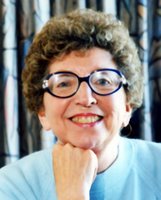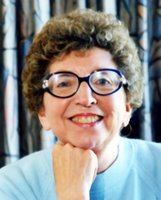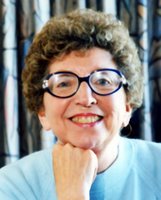reconnecting lifelong learners
 I have lived alone for many years. The responsibilities of my occupation kept me very busy and my life has been so satisfactory and enjoyable. Now I have retired and feel rather lost. I haven't made many friends over the years. How do you think I should proceed?
I have lived alone for many years. The responsibilities of my occupation kept me very busy and my life has been so satisfactory and enjoyable. Now I have retired and feel rather lost. I haven't made many friends over the years. How do you think I should proceed?Sarah S.
Don't be a loner! Make sure to touch bases with friends or acquaintances frequently. The importance of personal interactions on a regular basis cannot be stressed too highly.
Our social lives are far more important than most people realize. Research indicates that those who live alone and who don't make frequent social contacts do not live as long as those who interact with others on a regular basis.
It is so easy to lose contact with others as we pursue our daily responsibilities and activities in general. To regain contact, you might start with a telephone call to someone you know well, but haven't seen for awhile. Try to make a specific date to meet--for a walk, perhaps, or a cup of tea at a local café. Usually it is not difficult to reestablish a former relationship, but it may take a bit of an effort. Again, setting specific dates may be required, but it is really worth it to have a friend.
Another idea is to be a volunteer. Select an organization or service that you particularly admire--perhaps a childrens' service, or one for older adults--and donate some time each week. This is another way to make new acquaintances and to be with other people. Good luck!
I have hung it up! Now I can enjoy myself and not worry about problems that other people write to you. It's going to be great!
Sam W.
So you're retired? Family grown and left home? No more need to hear the alarm, face that dreadful commute, and put in long hours at the office. Now you can relax, watch as much TV as you wish, and just enjoy doing almost nothing. No need anymore to think, make tough decisions, and solve business problems, right? Wrong! In fact, there is now even more reason for you to continue to think and, even more important, to learn new things. At this point in your life, the term "use it, or lose it" becomes more significant than ever before.
Just as a reduction in physical activities quickly results in a loss of stamina necessary for physical fitness, a reduction in mental activity can have as great an impact on mental fitness--perhaps even greater. Mental
inactivity can result in memory loss, reduced awareness and attention to details, and a lack of concentration.
Until very recently, it was believed that loss of memory and brain function were just a natural part of aging, that brain cells were lost constantly and that nothing could be done to change this. Recent research now indicates
that the brain can grow and change at any age, and that learning something new can actually produce new brain cells and connections. The more the brain
is used, the better it works.
So turn off the TV, take up a new hobby, and find something mental that you
really enjoy, such as crosswords, puzzles, or cryptograms, perhaps. Also adopt a challenging physical regimen. For the best possible health, being active, both mentally and physically, is essential.
s
Enjoy your retirement! But be sure to live a life that will allow you to continue to enjoy it for many years to come.


